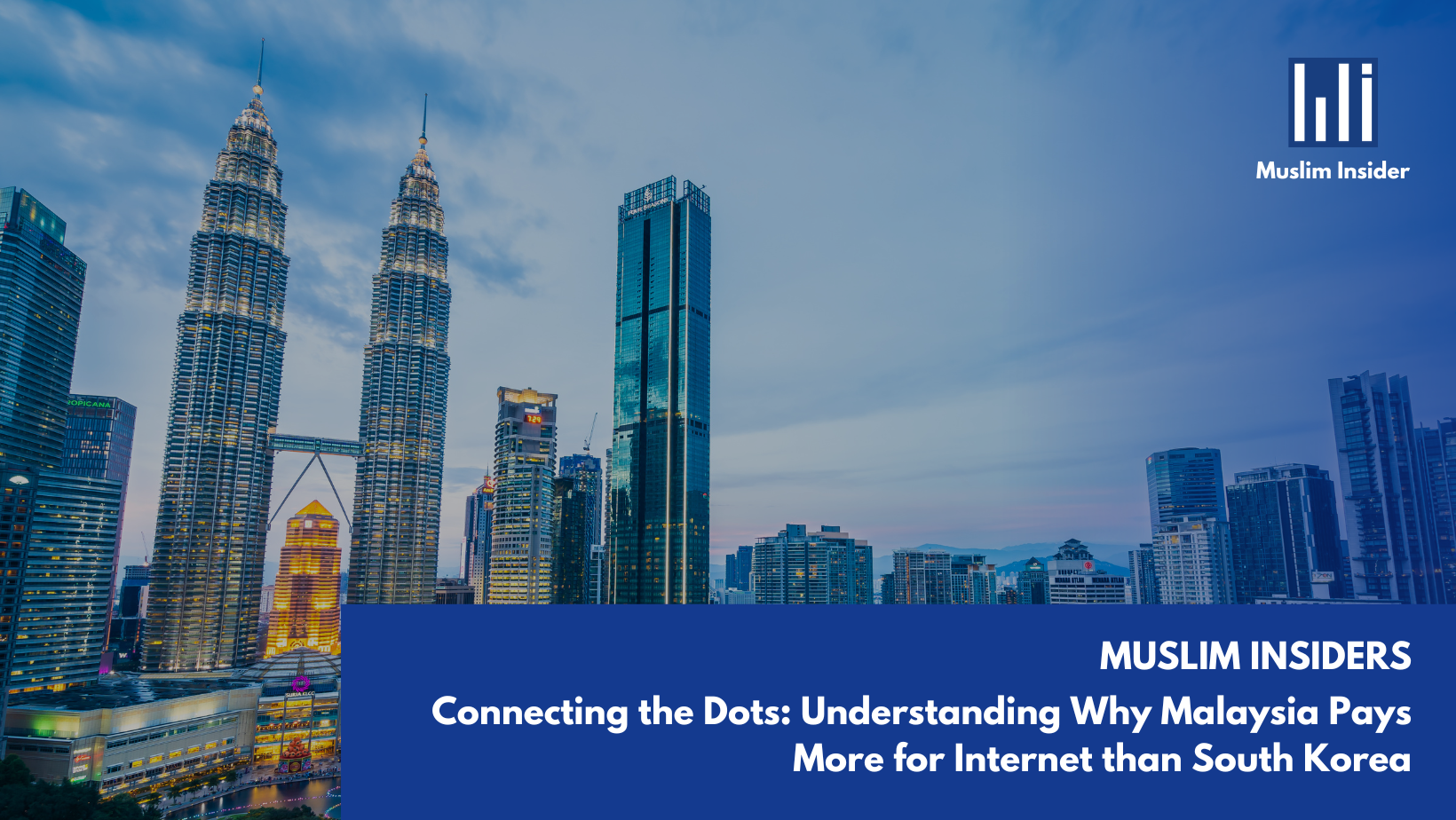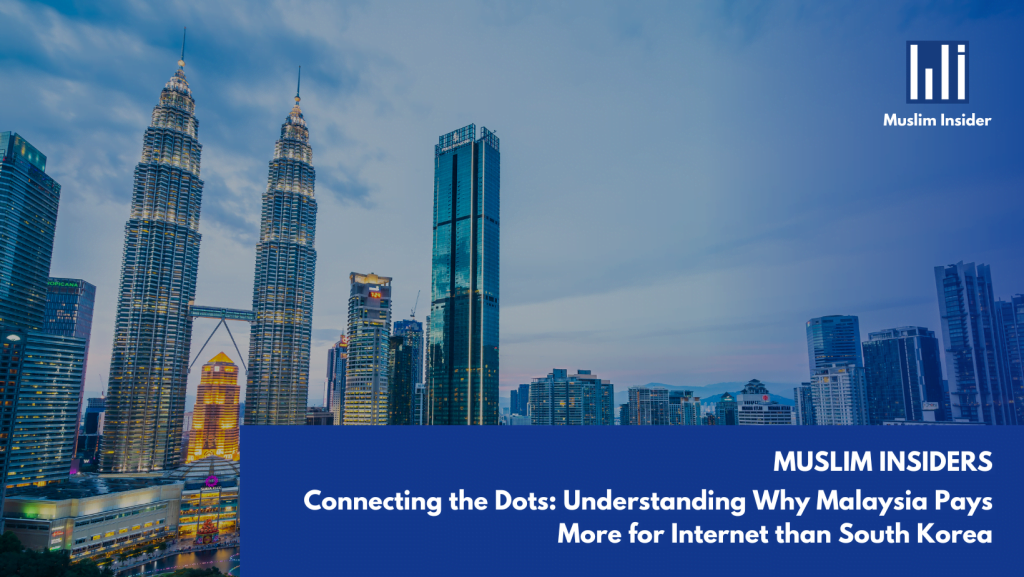

South Korea has been known as a global broadband leader for having their amazingly fast internet speed due to the advancement of technology of the country. While it may not hold the title for the country with absolute internet speed in comparison to United Arab Emirates and Monaco, it remains as a significant benchmark in the world of high-speed connectivity. This status is not merely a bragging rights, but a reflection of their country’s investments on the internet’s infrastructure and innovative solutions.
Internet Costs
Let’s take a look on the latest 2023 prices offered between the largest ISP in South Korea and Malaysia, which are KT Corporation Telekom Malaysia (TM). The price they offer based on 1 Gbps plan of internet speed is 45,000 KRW, approximately RM 156 per month. Meanwhile, TM Unifi offers RM 423.90 per month which is 2.7 times pricier than KT Corporation. For the 100 Mbps plan, they offer 27,000 KRW, approximately RM 93 per month, meanwhile TM Unifi (Unifi Home 100 Mbps) offers RM 129 per month, which is slightly more expensive.
According to the 2022 OECD broadband statistic update which includes Malaysia, the internet usage continue to increase for the data usage per mobile broadband subscription. As the increasing usage amount of internet keeps on growing, it has grow another concern to the Malaysian internet users that they need to pay more in the future when it is already expensive enough.
Below are the reasons why internet prices are more cheaper in South Korea:
Fiber Optic Connections Availability
South Korea has invested a lot to deploy this technology. Over 95% of their households are accessible to fiber-optic internet. This technology uses optical fibers which is one of the reasons why their internet speed is high. With its high capacity and lower latency, data transmitted are 70% faster than the speed of the light. This provide benefits to the citizens across various sectors for a faster web browsing, high quality of video streaming and improved digital experiences, enabling them to tackle the full potential of the digital age for education, entertainment, entrepreneurship, and efficient access to many services.
High Competition Between ISPs
The three major Internet Service Providers in South Korea are KT Corporation, SK Broadband and LG Plus. The constant competition between them to provide outstanding services and affordable pricing lead to a huge decrease in internet pricing over the years. This has elevated the overall internet experience for the South Korean users.
Government Role in Infrastructure Investments and Policy Efforts
The South Korea’s government has played a pivotal role in contributing to the investments and initiatives on their internet’s infrastructure. Majority of the population are ensured to have access to the high-speed internet. These efforts has been done with decades of policy efforts by the government, which starts in the 1970s and 1980s, following the Korean War. The efforts are paid off with the goals to provide technologies to the citizens to leverage on newly established data networks during the time. They continue to focus on their goal by transitioning from using copper lines to fiber between public institutes and buildings. To expand further, they set goals with measurable metrics, analyze the market limitations and implemented policies to promote competition and deployment.
As a result from the investments and innovations, South Korea has grown with a consistent speed and ranked at the top of global internet speed rankings, with its average internet speeds are frequently outshine other developed countries.
Challenges and Growth in Malaysia
The cause of higher broadband cost rolled out has been mentioned by the World Bank that is it due to Telekom Malaysia (TM) has charged other internet service providers (ISP) for the cable landing stations usage. The largest ISP in Malaysia also implement high-speed broadband and suburban broadband plans with the exclusive rights on government contract that they held. This can avoid from getting private investment for network rollout operations.
From the World Bank’s Malaysia Economic Monitor June 2018 report, Telekom Malaysia (TM) has the largest market share than other internet service providers. This is a sign that there are few to lack amount of competition among Malaysian internet service provider (ISP), which leads to a higher costs and slower internet speeds. Other than that, the report stated that the businesses in Malaysia does not score well on the World Bank’s Digital Adoption Index (DAI) for digital adoption, but rather scored well by the citizens and government. Malaysia needs to take decisive decision, accelerate the digital adoption initiatives to businesses to improve digital literacy and ensure the country’s competitiveness and resilience in the digital age.
Despite the concern, Malaysia has shown to have grown rapidly from 2017 to 2022. Recently, the Malaysian Communications and Multimedia Commission (MCMC) revealed that there will be broadband price reduction after September 2023. The price reduction has been made with the Malaysia’s government efforts to expand the fiber optic connections and aim to reduce the broadband cost.

Muslim Insiders is a dynamic organization dedicated to empowering the ideals of the Muslim economy and community, fostering growth and prosperity.
Contact Info
- 8, 8A, 10 & 10(A) D9 Commercial Park, Jalan U8/N, Seksyen U8, Bukit Jelutong, 40150, Shah Alam, Selangor.
- 019-777 2180
- enquiry@musliminsiders.com
Copyright © 2023 Muslim Insiders. All rights reserved.





